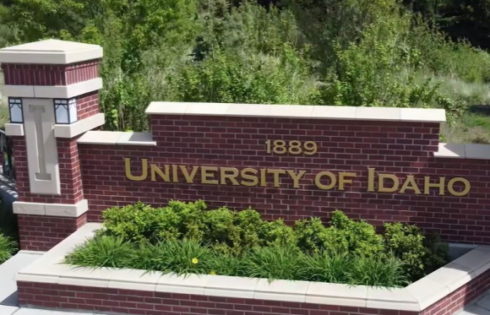 The Army says it would be interested in exploring ROTC’s return to Columbia University, but has not been approached by the school.
The Army says it would be interested in exploring ROTC’s return to Columbia University, but has not been approached by the school.
“Would the Army be overall better if we had a relationship with Columbia University? I think the answer is yes,” said Lt. Col. Matthew Hackathorn, a public affairs officer at the U.S. Army Cadet Command at Ft. Monroe, Va. If Columbia removes its ban on ROTC, resuming a program on the campus is “definitely be something we’d be interested in assessing.”
But there is a process. ROTC is “not an inexpensive endeavor.”
Moreover, Columbia has not yet reached out to the Army.
“To my knowledge there has been no interest from Columbia,” Hackathorn said. “I’d much rather deal in fact [than speculation], and the fact is that Columbia hasn’t said anything to us.”
Currently, the Columbia University Senate has circulated a recent draft resolution to end the school’s 42-year ban on the program, which, after review, will be put to a vote in April. Even if the resolution passes, a lengthy process to determine if Columbia and an ROTC program could work together will follow.
“If the University reached out, at least several months of determination and negotiation [would follow],” said Ted Graske, the Chair of the Columbia Alliance for ROTC.
A Columbia College graduate of 1959, Graske played varsity football and was NROTC. He served six years active- and 24 reserve-duty.
Columbia, Graske said, would only be one school of many in line for an ROTC program, with “no special privileges or penalties.”
“There are a lot of schools asking for ROTC to return,” he added. And with defense cuts, it’s quite possible that programs will only be added to new schools as they are cut from old schools.
The process takes place over a couple of months, and involves a mutual evaluation taking into consideration several factors. Graske believes that most important is a “concrete indication of the desire for a good relationship.” Following that are cost, the diversity of the school, presence of engineering students and logistical concerns.
Earlier this month, Harvard signed an agreement to officially recognize Naval ROTC. Harvard President Drew Faust had pushed, publicly, for the program in 2010 and promised to recognize ROTC upon the repeal of Don’t Ask, Don’t Tell.
The agreement will grant midshipmen the ability to use Harvard facilities for training, and use Harvard transportation to MIT, where there is a regional ROTC program. It is still unlikely Harvard will host units of ROTC’s three programs — Army, Navy and Air Force — without sufficient student interest. Currently, only 20 students are enrolled in ROTC at Harvard.
Columbia has a dozen ROTC participants currently, who take courses through the regional program at Fordham University, as well as approximately 350 student veterans.
“The military will not come back with out a concrete welcome sign from Columbia and an opportunity to grow participation over time to gain a return on their investment,” Graske said.
Conor Skelding is a daily editor for the Bwog at Columbia University. He is a member of the Student Free Press Association.




Please join the conversation about our stories on Facebook, Twitter, Instagram, Reddit, MeWe, Rumble, Gab, Minds and Gettr.